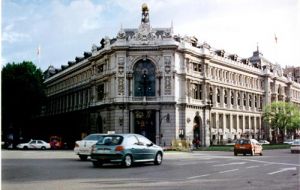MercoPress. South Atlantic News Agency
Spanish Central bank warns about budget deficit and market confidence
 Although the Spanish economy fall is easing, new mid term challenges await the government of President Rodrigues Zapatero.
Although the Spanish economy fall is easing, new mid term challenges await the government of President Rodrigues Zapatero. The Spanish economy contracted 0.9% in the second quarter of the year, an improvement over the 1.9% fall of the previous quarter but still 4% below the same quarter a year ago, according to the latest release from the Central Bank.
“Indicators available for the period from April to June show a prolongation of the contraction tendency, although at a more contained rate, in an environment characterized by certain normalization of financial markets and less severe external conditions” said the Bank of Spain in quite a cautious release.
In year-on-year terms, GDP declined by 4% in the second quarter, a steeper decline than the 3% seen in the first, the bank said, pointing out that the year-on-year figure was “subject, by definition, to greater inertia”' than quarterly data.
Spain's decline in output would have been greater had it not been for a positive contribution to GDP from trade due to a steep fall in imports no longer affordable to Spanish consumers and companies whose access to easy credit has disappeared.
Without including trade, Spanish demand contracted by 6% year-on-year, the bank said.
Supporting demand has been the government's fiscal stimulus plan, which the Economy Ministry says will add 150 billion Euros to public debt by the end of next year.
However the Bank of Spain warned that the government will have to make great efforts to meet its promise to reduce the budget deficit to the European-Union limit of 3% of GDP by 2012.
“Complying with the austerity targets is very important for preserving market confidence in mid-term budget stability” said the bank adding that government of Rodriguez Zapatero had to take “ambitious” cost-cutting measures.
“Past experience shows that for budget consolidation to be successful, it has to include cuts in public spending, especially non-productive spending”, said the bank’s release.
As to the larger picture the Bank of Spain cautioned that slower falls in output and signs of stabilization in international financial markets have put a stop to the continual downward revisions for world economic growth, although “the diagnosis of a long recession with very gradual recovery remains in place”.




Top Comments
Disclaimer & comment rulesCommenting for this story is now closed.
If you have a Facebook account, become a fan and comment on our Facebook Page!